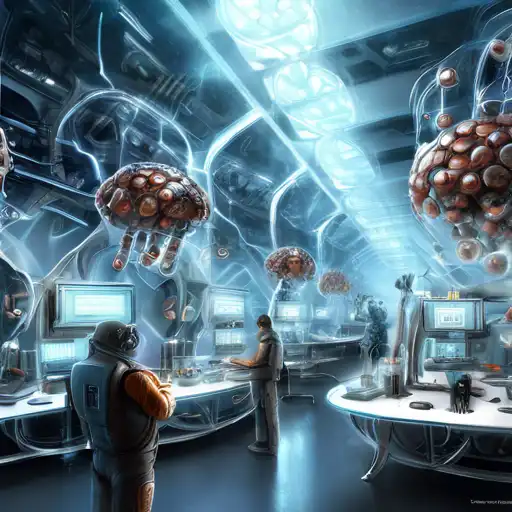Introduction to Nanotechnology
Nanotechnology, the science of the incredibly small, is making waves across various industries, from healthcare to electronics. This groundbreaking technology operates at the nanoscale, dealing with structures less than 100 nanometers in size. Its potential to revolutionize our world is immense, offering solutions to some of the most pressing challenges we face today.
The Science Behind Nanotechnology
At its core, nanotechnology involves the manipulation of matter at the atomic or molecular level. This allows scientists and engineers to create materials and devices with unprecedented properties and functionalities. The ability to control matter at such a tiny scale opens up a world of possibilities, from stronger and lighter materials to more efficient energy sources.
Applications of Nanotechnology
The applications of nanotechnology are vast and varied. In the medical field, it's being used for targeted drug delivery, significantly improving the effectiveness of treatments while minimizing side effects. In electronics, nanotechnology has led to the development of smaller, faster, and more energy-efficient devices. Environmental applications include water purification systems and pollution reduction technologies.
Healthcare Innovations
One of the most promising areas of nanotechnology is in healthcare. Nanoparticles can be designed to target specific cells, such as cancer cells, delivering drugs directly to the affected area. This precision medicine approach not only enhances treatment efficacy but also reduces the impact on healthy cells.
Electronics and Computing
In the realm of electronics, nanotechnology is pushing the boundaries of what's possible. From quantum computing to flexible electronics, the advancements are paving the way for a new era of technology that's more integrated into our daily lives than ever before.
The Future of Nanotechnology
As research and development in nanotechnology continue to advance, the potential applications are only limited by our imagination. Future advancements could lead to breakthroughs in energy storage, environmental protection, and even space exploration. The small scale of nanotechnology belies its enormous potential to impact our world in big ways.
Challenges and Considerations
Despite its promise, nanotechnology also presents challenges, including ethical, environmental, and health concerns. The long-term effects of nanoparticles on human health and the environment are still being studied, and regulatory frameworks are evolving to address these issues.
Conclusion
Nanotechnology is a testament to the incredible advancements in science and technology. Its ability to operate at the nanoscale offers solutions that were once thought impossible. As we continue to explore and harness its potential, nanotechnology is set to play a pivotal role in shaping the future of our world.
